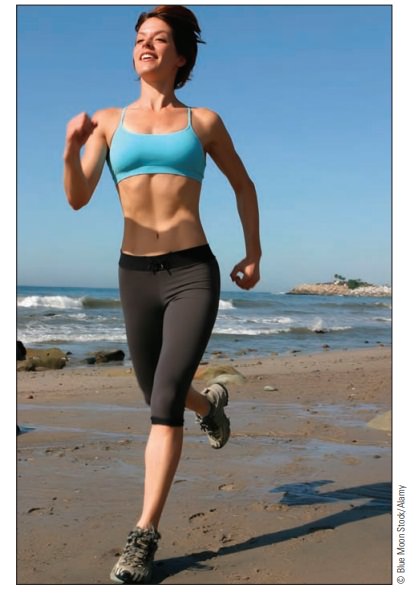Chapter: Biochemistry: The Citric Acid Cycle
Why Is It So Hard to Lose Weight?
Why Is It So
Hard to Lose Weight?
One of the great tragedies about being human is that it is far too
easy to gain weight and far too difficult to lose it. If we had to analyze the
specific chemical reactions that make this a reality, we would look very
carefully at the citric acid cycle, especially the decarboxylation reactions.
As everybody knows, all food in excess can be stored as fat. This
is true for carbohydrates, proteins, and, of course, fats. In addition, these
molecules can be interconverted, with the excep-tion that fats cannot give a
net yield of carbohydrates. Why can fats not yield carbohydrates? The real
answer lies in the fact that the only way a fat molecule would have to make
glucose would be to enter the citric acid cycle as acetyl-CoA and then to be
drawn off as oxaloacetate for gluconeogenesis. Unfortunately, the two carbons
that enter are effectively lost by the decarboxylations. (We have already seen
that, in one round of the citric acid cycle, it isn’t really these same two
carbons that are lost; nevertheless, a two-carbon loss is a two-carbon loss,
regard-less of which two carbons they were.) This leads to an imbalance in the
catabolic pathways versus the anabolic pathways.
All roads lead to fat, but fat cannot lead back to carbohydrate.
Humans are very sensitive to glucose levels in the blood because so much of our
metabolism is geared toward protecting our brain cells, which prefer glucose as
a fuel. If we eat more carbohydrates than we need, the excess carbohydrates
turn to fat. As we know, it is very easy to put on fat, especially as we age.
What about the reverse? Why don’t we just stop eating? Won’t that reverse the
process? The answer is yes and no. When we start eating less, fat stores are
mobilized for energy. Fat is an excellent source of energy because it forms
acetyl-CoA and gives a steady influx for the citric acid cycle. Thus, we can
lose some weight by reducing our caloric intake. Unfortunately, our blood sugar
also drops as soon as our glycogen stores run out. We don’t have very much
stored glycogen that could maintain our blood glucose levels.

After the blood glucose drops, we become depressed, slug-gish, and
irritable. We start having negative thoughts like, “This dieting thing is
really stupid. I should eat a pint of ice cream.” If we continue the diet, and
given that we cannot turn fats into car-bohydrates, where does the blood
glucose come from? Only one source remains: proteins. Proteins are degraded to
amino acids, and they are eventually converted to pyruvate for
gluconeogen-esis. Thus, we begin to lose muscle as well as fat.
There is a bright side to all of this, however. Using our
knowl-edge of biochemistry, we can see that there is a better way to lose
weight than dieting—exercise! If you exercise correctly, you can train your
body to use fats to supply acetyl-CoA for the citric acid cycle. If you
maintain a normal diet, you maintain your blood glucose and do not degrade proteins
for that purpose; your ingested carbohydrates are sufficient to maintain blood
glucose and carbohydrate stores. With the proper balance of exercise to food
intake, and the proper balance of the right types of nutri-ents, we can
increase the breakdown of fat without sacrificing our carbohydrate stores or
our proteins. In essence, it is easier and healthier to train off the weight
than to diet off the weight. This has been known for a long time. Now we are in
a position to see why it is biochemically so.
Related Topics